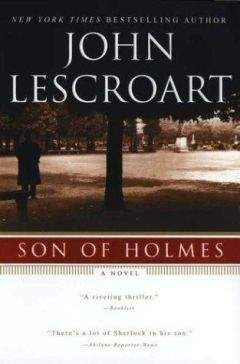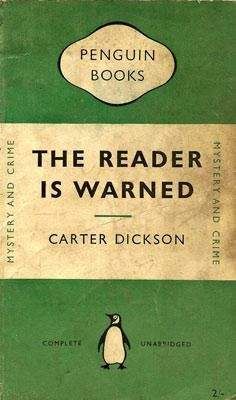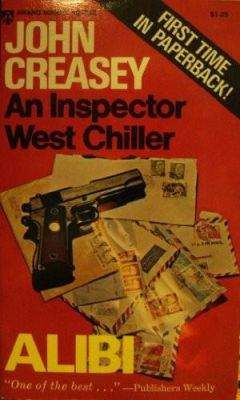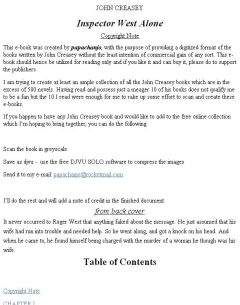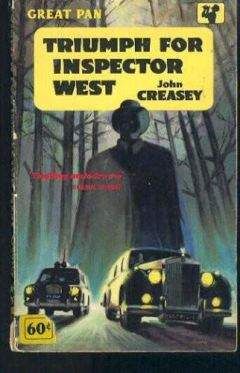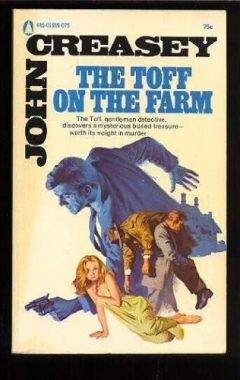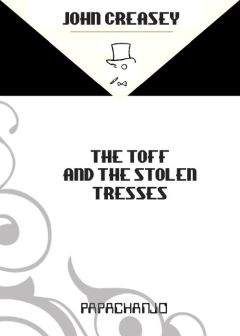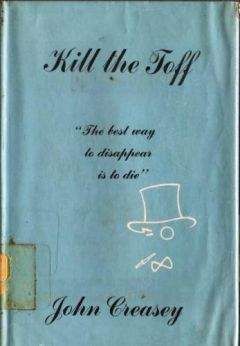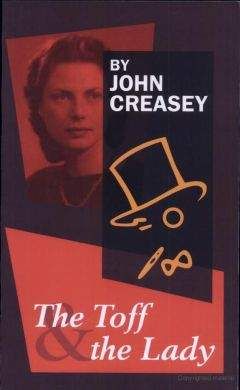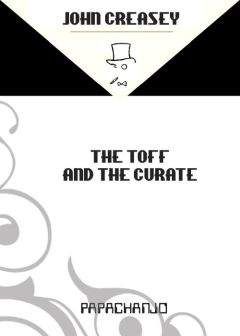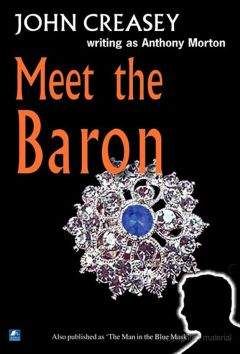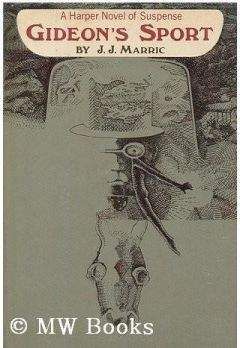John Steinbeck - Once there was a war
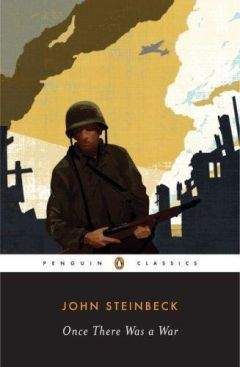
Скачивание начинается... Если скачивание не началось автоматически, пожалуйста нажмите на эту ссылку.
Жалоба
Напишите нам, и мы в срочном порядке примем меры.
Описание книги "Once there was a war"
Описание и краткое содержание "Once there was a war" читать бесплатно онлайн.
“No, sir,” said Lieutenant Blank. “But we have six captured Italian MS boats. How would it be if we took one of them and just went over and got her? It would only take an hour or less.”
“And suppose you lost the boat and got yourself killed?”
“We wouldn’t do that, sir. We would just run over and get her. We could do it in practically a few minutes.”
The commodore said, “I can’t permit it. The thing is out of the question. The thing is silly. We’re trying to run a war, not a maternity hospital. And besides, I have work for you to do. You can’t go running about like this.”
“Yes, sir,” said Lieutenant Blank.
“These are your orders,” said the commodore. “You are to take one of the MS boats and patrol the coast of the mainland, particularly in the area about Castellammare. You will report the presence of any German shipping there and if you see any hostile craft you will report it and engage it. It may be necessary for you to go pretty far inshore to carry out these orders. Do you understand?”
“Yes, sir,” said Lieutenant Blank, “but I sure wish we could have got that girl off.”
“This is no time for sentiment,” the commodore said.
The thing was very quick. It required only to pull up to the little dock at the little town and to ask for Luigi’s daughter. In ten minutes she was at the dock carrying a bundle of clothing and, in our estimation, she was a little closer than even Luigi suspected. And then the Isotta-Fraschini engines of the MS boat purred and the white wake spread away from the boat and she cut through the water back to Capri, for MS boats do not ride on top of the water, they knife through it.
The rest was very silly. Luigi was at the waterfront and he cried and his daughter cried and about a thousand Caprianos cried and the sound of kissing was deafening and a lot of sailors looked gruff and a kind of triumphant procession went up the hill on the funicular railway and there was something in the nature of a party at Luigi’s bar. The child, no matter what its sex, is going to have Lieutenant Blank’s first name, and not only Luigi but all Luigi’s relatives are going to remember all of us in their prayers for hundreds of years to come.
So much for the assurances. But the next morning a party of five went up on the hill to get haircuts. We were sitting reading copies of The London Pictorial for 1937 and waiting for the one barber chair to be vacant when in the doorway Luigi appeared. And Luigi carried a little tray and on the tray was a Scotch and soda for each of us. And later in the day we went shopping and wherever we stopped to look and to buy there Luigi appeared with his little tray.
It was a pretty nice day.
THE CAMERA MAKES SOLDIERS
SOMEWHERE IN THE MEDITERRANEAN WAR THEATER, October 21, 1943—I suppose that there is no weapon which so slyly and surely attacks the souls of men as a moving-picture camera does. Men who are disgusted or hurt or just plain ignorant react to a Bell & Howell Eyemo as a frog does to a hot rock. One of our best sports writers suggested one time that the best way to get touchdowns in football was to mount a newsreel camera between the goal posts. It is a secret weapon which dissects people and brings out the curious childish ego that everyone has and lays it spread out thick on the surface.
Recently in Africa and Sicily and Italy we (not editorial we, but a cameraman and I) were working on a technical picture for the Army and there we discovered that the same force that operates at Long Island garden parties and at tennis matches also works on a battle line. It worked everywhere. Weary troops straightened up and marched stiffly and some of them tried to hog the camera and some of them looked fierce and soldierly. All shoulders went back and steps quickened. The thinly covered actor in everyone came out. A line of Army stevedores on a dock in a North African port suddenly, on seeing the camera, began to pass boxes of C-rations with a speed and rhythm which has probably never been duplicated in Army history. Of course the moment the camera was moved they went back to a much more sensible, goldbricking pace, but for the few feet of film we have, the boxes shot by and piled up in a mountain out of camera range.
The impact of the camera is by no means limited to the Americans. Our picture had to do with all kinds of work and all kinds of men. One day we set up on a barge where a number of Arabs were employed to unload cargo and, incidentally, were doing the finest bit of sleepwalking I have ever seen. Each Arab regarded each box as a personality he didn’t like, touched with reluctance, and got rid of with relief. His repugnance, however, did not make him carry it to its destination with any speed that required streamlining. With these people we did not find any speedup when the camera was produced. The moment it began to turn, every Arab stood up grandly and presented his profile and looked sternly toward Mecca. Time and time again we tried to catch them in what is called a natural pose, not of work, because that would be a contradiction in terms, but just relaxed and looking Arab. But either they had seen too many Hollywood films of Valentino as an Arab, or a Valentino had studied Arabs under the impact of the camera. We never caught them any other way except looking sternly offstage, always in profile and always noble. We had wanted to get them relaxed because I suppose Arabs have as few noble moments as anyone in the world. Bushmen may compete with them in this respect but I doubt it. And they could not be fooled. They knew when the camera was turning and when it wasn’t. They were as highly trained in stealing scenes from each other as dress extras in Hollywood. Finally we gave up. They will continue noble as far as we are concerned. We will perpetuate this myth of the noble Arab. The moment we stopped shooting they collapsed into natural Arabs, but we never got it on film.
The camera works everywhere. There is no ferocity like that on the face of a quarterback who is running, not at an opponent but at newsreel coverage on a tripod. And this may all be egotism, but there was one example of something that seemed to be much more than this. One day we set up the camera to photograph the discharge of the cargo of a hospital ship which had been loaded in Sicily. The side doors of the ship were opened and the wooden platform was extended. The lines of ambulances were drawn up on the pier, and then the stretcher-bearers came down in a steady line with the wounded men sitting and lying and huddled and stretched out in positions indicated by the nature of their wounds. Some of them were sick with pain, were gray with pain, and some were only slightly hurt so that their eyes were clear. And not one single man as he passed the camera failed to respond to it. Everyone gave it either a smile or a little nod. Some saluted it gravely. The rigid features changed and the eyes brightened, and if an arm could move it moved in greeting. I think this was not egotism. I think these men, each one of them, had a quick thought. “Someone at home will see this picture. I must appear less badly hurt than I am. Otherwise they might worry.” I think those tired smiles were a great hunk of consideration and courage.
THE STORY OF AN ELF
Monday, November 1, 1943—This story could not be written if there were not witnesses—not vague unknown men, but Quentin Reynolds and H. R. Knickerbocker and Clark Lee and Jack Belden, who was hurt at Salerno, and John Lardner and a number of others who will come clamoring forward if anyone doubts the facts here to be presented.
The thing began when a British consul met Quentin Reynolds in the hall of the Alletti Hotel in Algiers. The consul was a small, innocent, well-mannered man who liked to think of the British and Americans as allies and who was willing to make amicable gestures. In good faith he asked Reynolds where he was staying and in equal good faith Reynolds replied that he had not yet been billeted.
“There’s an extra bed in my room,” the consul said. “You’re welcome to it if you like.”
That was the beginning, and what happened was nobody’s fault. It was just one of those accidents. The consul had a nice room with a balcony that overlooked the harbor and from which you could watch air raids. It wasn’t Reynolds’ fault. He accepted hospitality for himself, not for the nine other war correspondents who moved in with him. Nine is only a working number. Sometimes there were as many as eighteen. They slept on the floor, on the balcony, in the bathroom, and some even slept in the hall outside the door of Room 140, Alletti Hotel, Algiers.
It was generally agreed that the consul should have his own bed, that is, if he kept it. But let him get up to go to the bathroom and he returned to find Knickerbocker or Lee or Belden, or all three, in it. Another thing bothered the consul a little. Correspondents don’t sleep much at night. They talked and argued and sang so that the poor consul didn’t get much rest. There was too much going on in his room. He had to work in the daytime, and he got very little sleep at night. Toward the end of the week he took to creeping back in the middle of the afternoon for a nap. He couldn’t get his bed then. Someone always had it. But at three in the afternoon it was usually quiet enough so that he could curl up on the floor and get a little rest.
The foregoing is not the unbelievable part—quite the contrary. It is what follows that will require witnesses. It was during one of the all-night discussions of things in general that someone, perhaps Clark Lee, perhaps Dour Jack Belden, suggested that we were getting very tired of Algerian wine and wouldn’t it be nice if we had some Scotch. From that point on this is our story and we intend to stick to it.
Someone must have rubbed something, a ring or a lamp or perhaps the utterly exhausted British consul. At any rate, there was a puff of blue smoke and standing in the room was a small man with pointed ears and a very jolly stomach. He wore a suit of green leather and his cap and the toes of his shoes ended in sharp points and they were green too.
“Saints of Galway,” said Reynolds. “Do you see what I see?”
“Yes,” said Clark Lee,
“Well, do you believe it?”
“No,” said Lee, who is after all a realist and was at Corregidor.
Jack Belden has lived in China for many years and he knows about such things. “Who are you?” he asked sternly.
“I’m little Charley Lytle,” the elf said.
“Well, what do you want, popping in on us?” Belden cried.
The British consul groaned and turned over and pulled the covers over his head. Knickerbocker has since admitted that his first impulse was to kill the elf and stuff him to go beside the sailfish in his den. In fact, he was creeping up when Charley Lytle held up his hand.
“When war broke out I tried to enlist,” he said. “But I was rejected on political grounds. It isn’t that I have any politics,” he explained. “But the Army’s position is that if I did have, heaven knows what they would be. There hasn’t been a Republican leprechaun since Coolidge. So I was rejected pending the formation of an Elves-in-Exile Battalion. I decided then that I would just make people happy, soldiers and war correspondents and things like that.”
Reynolds’ eyes narrowed dangerously. He is very loyal. “Are you insinuating that we aren’t happy?” he gritted. “That my friends aren’t happy?”
“I’m not happy,” said the British consul, but no one paid any attention to him.
Little Charley Lytle said, “I heard some mention made of Scotch whisky. Now it just happens that I have—”
“How much?” said Clark Lee, who is a realist.
“Why, all you want.”
“I mean how much money?” Lee demanded.
“You don’t understand,” said little Charley. “There is no money involved. It is my contribution to the war—I believe you call it effort.”
“I’m going to kill him,” cried Knickerbocker. “Nobody can sneer at my war and get away with it.”
Reynolds said, “Could we get a case?”
“Surely,” said little Charley.
“Three cases?”
“Certainly.”
Lee broke in. “Now don’t you strain him. You don’t know what his breaking point is.”
“When can you deliver?” Reynolds asked.
Instead of answering, little Charley Lytle made a dramatic and slightly ribald gesture. There was one puff of smoke and he had disappeared. There followed three small explosions, like a series of tiny depth charges, and on the floor of Room 140 of the Alletti Hotel in Algiers lay three cases of Haig and Haig Pinch Bottle, ringed with the hot and incredulous eyes of a platoon of thirsty correspondents.
Reynolds breathed heavily the way a man does when he has a stroke. “A miracle!” he whispered. “A miracle straight out of the middle ages or Mary Roberts Rinehart.”
Dour Jack Belden has lived a long time in China. On top of a basic pessimism, he has seen everything and is difficult to impress. His eyes now wandered out the arched window to the sweltering streets and the steaming harbor below. “It’s a medium good trick,” he said. “But it’s a cold-weather trick. I’d like to give him a real test.” He ignored the growl of growing rage from his peers. “If this so-called Elf could produce a bottle of say La Batt’s Pale India Ale on a day like this, I’d say he was a commer—” He was interrupted by a slight fall of snow from the hot and fly-specked ceiling. Our eyes followed the lazy white flakes to the floor, where they fell on a box of slim-necked bottles. The snow swirled and spelled out Courtesy of Canada in the air.
I think Jack Belden went too far. He said lazily, “But is it cold?”
Reynolds flung himself forward and touched the neck of a bottle. “Colder than a (two words deleted by censor),” he said.
That night there was an air raid, and even the British consul enjoyed it. And anyone who doesn’t believe this story can ask any of the people involved, even dour Jack Belden.
MAGIC PIECES
November 3, 1943—A great many soldiers carry with them some small article, some touchstone or lucky piece or symbol which, if they are lucky in battle, takes on an ever-increasing importance. And being lucky in battle means simply not being hurt. The most obvious magic amulets, of course, are the rabbits’ feet on sale in nearly all gift stores. St. Christopher medals are carried by Catholics and non-Catholics alike and in many cases are not considered as religious symbols at all, but as simple lucky pieces.
A novelty company in America has brought out a Testament bound in steel covers to be carried in the shirt pocket over the heart, a gruesome little piece of expediency which has faith in neither the metal nor the Testament but hopes that a combination may work. Many of these have been sold to parents of soldiers, but I have never seen one carried. That particular pocket is for cigarettes and those soldiers who carry Testaments, as many do, carry them in their pants pockets, and they are never considered as lucky pieces.
The magic articles are of all kinds. There will be a smooth stone, an odd-shaped piece of metal, small photographs encased in cellophane. Many soldiers consider pictures of their wives or parents to be almost protectors from danger. One soldier had removed the handles from his Colt .45 and had carved new ones out of Plexiglas from a wrecked airplane. Then he had installed photographs of his children under the Plexiglas so that his children looked out of the handles of his pistol.
Подписывайтесь на наши страницы в социальных сетях.
Будьте в курсе последних книжных новинок, комментируйте, обсуждайте. Мы ждём Вас!
Похожие книги на "Once there was a war"
Книги похожие на "Once there was a war" читать онлайн или скачать бесплатно полные версии.
Мы рекомендуем Вам зарегистрироваться либо войти на сайт под своим именем.
Отзывы о "John Steinbeck - Once there was a war"
Отзывы читателей о книге "Once there was a war", комментарии и мнения людей о произведении.





